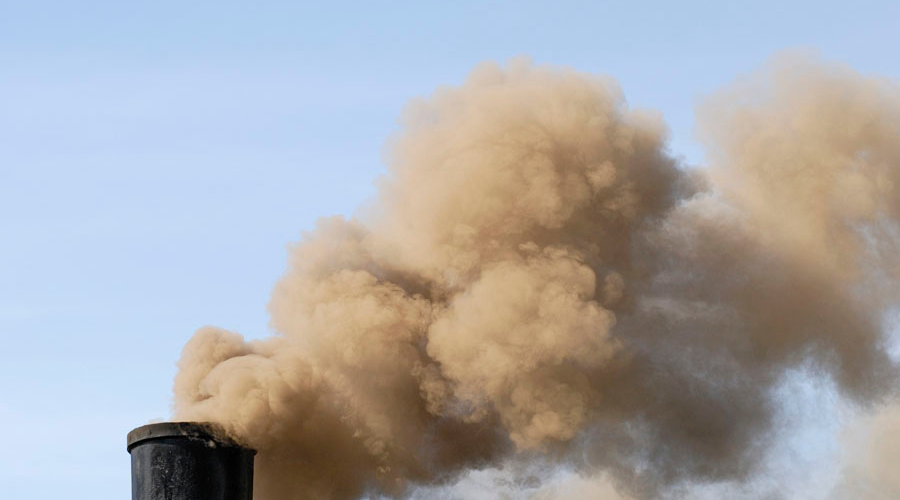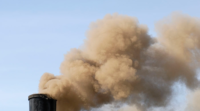Trump sued over Clean Air Act

The Natural Resources Defense Council (NRDC) and other environmental organizations are suing the Trump administration for violating the Clean Air Act by suspending protections against methane leaks and other air pollution emitted by oil and gas industry operations.
The President announced the rollback last week, shortly before declaring he was withdrawing the U.S. from the Paris Agreement, a global commitment that 195 nations approved to combat climate change.
The legal papers are here.
"Polluter giveaway"
NRDC senior attorney Meleah Geertsma says the Trump EPA has broken the law by allowing what she called a “blatant polluter giveaway.”
“The Trump administration does not have unlimited power to put people’s health in jeopardy with unchecked, unilateral executive action like this. Stopping methane leaks is a no-brainer—avoiding wasted gas, creating jobs, fighting climate change and cutting cancer-causing pollution all at once.”
NRDC, together with Clean Air Council, Earthworks, Environmental Defense Fund, Environmental Integrity Project and Sierra Club, filed the lawsuit in the U.S. Court of Appeals for the District of Columbia Circuit. The groups asked the court to block EPA Administrator Scott Pruitt’s “stay” of federal standards that curb leaks of methane and other dangerous air pollutants from new oil and gas wells and other facilities. The leak detection and repair requirements were scheduled to take full effect on June 3.
Indefinite stay proposed
Pruitt issued the 90-day stay without any advance public notice or opportunity for public comment, as required by law. This is the first step the EPA is taking to dismantle methane standards; the stay notice indicates that Pruitt he would soon propose to extend the stay indefinitely.
The oil and gas sector is the largest U.S. industrial emitter of methane, which is the second-biggest driver of climate change after carbon dioxide.
The NRDC says leaking oil and gas facilities also release smog-forming and cancer-causing chemicals that trigger asthma attacks and increase cancer risks for people living nearby.
Why detecting leaks is important
EPA’s detection and repair program is crucial to identify and stop leaks, which can occur in very large volumes, of methane and other pollutants from the hundreds of valves, pumps, tanks and other equipment at oil and gas wells, as well as in the pipeline network that brings the gas to market. Finding and fixing these leaks is technically simple, cost-effective, prevents wasted gas, and creates high-paying jobs.
NRDC and others released a report in 2014 that shows EPA can cut methane pollution in half, while dramatically reducing other harmful air pollution at the same time, by issuing federal standards for new and existing infrastructure nationwide.
Looking for a reprint of this article?
From high-res PDFs to custom plaques, order your copy today!






.jpg?t=1721257160)

